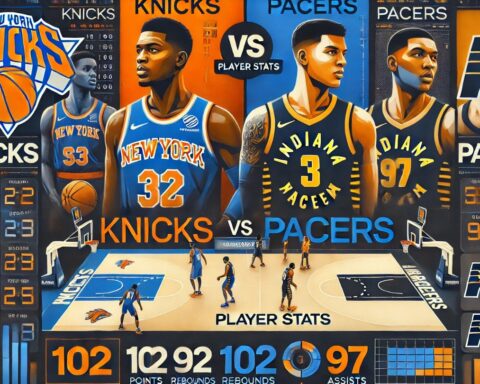Understanding the Roots of “Discog”
Discog is a term derived from the word discography, which refers to a comprehensive listing of sound recordings by a particular artist, label, or genre. In digital and musical communities, particularly those that thrive on record collecting, DJ culture, and online music databases, the term “discog” has evolved into slang or shorthand that signifies much more than just a catalog.
Originally, a discography was a scholarly or industry term, used in academic studies of music, particularly jazz, classical, and early pop recordings. However, with the rise of internet culture and online databases like Discogs.com, the word “discog” has taken on new meanings, serving both as a noun (a collection) and a verb (to catalog or explore music records).
Understanding the discog definition today requires a blend of historical context, cultural relevance, and digital literacy.
A Brief History of Discog Definition
Before we can grasp the modern discog meaning, we must understand how discographies came into existence. Discographies were originally detailed lists created by music historians, collectors, and journalists to track the production and release of music in the early 20th century.

Key historical facts:
- The term discography was first used in the 1930s, largely by jazz historians.
- Early discographies were manually compiled using liner notes, record labels, and press releases.
- Over time, discographies became essential for collectors and researchers seeking authenticity and historical accuracy.
These early lists laid the foundation for the modern music cataloging systems we see in platforms like Discogs, AllMusic, and MusicBrainz.
Discog vs. Discography: Is There a Difference?
While “discog” is a shortened form of “discography”, the two can differ slightly in usage and tone. A discography is typically formal, exhaustive, and used in academic or professional settings. In contrast, “discog” is more casual, often used among collectors, DJs, or online communities to refer to someone’s collection, a list of releases, or even the act of looking up music.
Bold distinctions:
- Discography: Full documentation of recordings (albums, singles, EPs) by an artist or label.
- Discog: Slang for a discography, or shorthand used to reference the act of exploring music catalogs or an individual’s collection.
Understanding this distinction helps decode how the term functions in digital vernacular and music culture.
The Rise of Discogs.com and Its Impact
One of the most influential developments in the use of the term “discog” came with the creation of Discogs.com in 2000. This user-generated database was built to catalog vinyl records, CDs, and other music releases from around the world. Today, it boasts over 15 million releases and 8 million artists, becoming a central hub for collectors and enthusiasts.
Bold highlights of Discogs.com’s impact:
- Enables users to catalog personal collections
- Offers a marketplace for buying and selling rare records
- Provides metadata for virtually every genre and release
As a result, “discog” has become synonymous with music exploration and collection, especially in the vinyl resurgence of the past decade.
Digital Culture and the Evolution of “Discog Definition”
In online spaces—Reddit threads, Discord servers, and music forums—the word “discog” has become a verb and a noun. You might hear someone say, “I’m discogging all of Prince’s albums,” meaning they’re exploring or collecting his full body of work.
Digital evolution includes:
- Use of “discog” as a verb in music fan communities
- Creation of user-generated “discogs” on social media platforms
- Use in music tagging systems and streaming metadata
This linguistic shift is part of a larger trend in how digital natives repurpose traditional terms into modern slang.
The Importance of Discogs in Music Preservation
When asking “what does discog mean,” it’s important to recognize its cultural and archival significance. In a world where music is increasingly digital, physical formats are sometimes lost, forgotten, or underrepresented. Platforms like Discogs and the communities that embrace the term “discog” serve a critical function: they preserve music history.
Cultural relevance includes:
- Documenting rare and out-of-print releases
- Archiving underground or independent music not listed on mainstream platforms
- Supporting collector-driven data curation
Thus, the term “discog” reflects a broader mission to keep music history alive.
Discog in DJ and Collector Communities
For DJs, vinyl lovers, and audiophiles, the term “discog” carries unique connotations. To “discog” an artist is to deep-dive into their catalog, looking for rare tracks, sample-worthy beats, and deep cuts. These enthusiasts often rely on Discogs to manage their collections and curate sets for performance or enjoyment.
In these communities:
- A “discog” might refer to a complete vinyl catalog of a genre (e.g., 90s house)
- Collectors often brag about their Discogs pages and rankings
- The term is used alongside phrases like “crate-digging” and “vinyl run”
Discog culture is not just about cataloging—it’s about identity, taste, and music philosophy.
Academic Use of the Term
In scholarly contexts, especially musicology and library science, “discography” remains the official term. However, younger researchers and students are increasingly referencing Discogs.com as a primary or secondary source, and the shorthand “discog” is making its way into academic citations and discussions.
Academic applications include:
- Tracking recording sessions for historical research
- Using Discogs to verify release dates and label affiliations
- Understanding trends in genre evolution and artist development
This shift reflects how digital tools reshape traditional scholarship.
Discog and Metadata: The Backbone of Music Cataloging
Modern discogs are as much about metadata as they are about music. When users build a discog—whether personal or shared—they’re organizing data that includes release year, label, catalog number, track listing, and format.
Metadata importance:
- Enables precise search and categorization
- Helps identify pressing variations and bootlegs
- Supports AI-driven music recommendations
In a data-driven world, a discog isn’t just a list—it’s a structured archive of cultural artifacts.
Discog in the Streaming Era
With platforms like Spotify, Apple Music, and Tidal dominating music consumption, the relevance of discogs might seem diminished. However, that’s far from the truth. Many users now build digital discogs using playlists or track libraries, often referencing Discogs.com to ensure completeness or accuracy.
Streaming-era behaviors include:
- Using Discogs to fill gaps in streaming collections
- Collecting non-streaming releases in physical or digital formats
- Reconstructing artist discographies as custom playlists
Even in a digital world, the discog remains a key tool for serious listeners.
Creating Your Own Discog: Tools and Tips
Building a personal discog can be deeply satisfying and practically useful. Whether you’re an artist, DJ, or music lover, organizing your collection gives you insight into your taste and listening history.
Tips for creating a discog:
- Use platforms like Discogs.com or MusicBrainz
- Include metadata such as genre, label, and format
- Add personal notes for context (e.g., where you bought the record, how it sounds)
Your discog is a reflection of your musical journey.
discog meaning: Exploring the Popular Understanding
The discog meaning has broadened over the years. While it still refers to a collection or catalog of musical works, in common usage it also signifies the act of exploring, curating, or collecting music—especially physical formats like vinyl or cassette.
Common interpretations include:
- A personal or shared music archive
- A tool for cataloging vinyl records
- A term used casually to describe music exploration
In today’s music culture, “discog” means both action and archive.
what does discog mean? A Simple Answer with Broad Implications
For those asking “what does discog mean,” the short answer is: it’s shorthand for a discography, or a music catalog. But in practical terms, it represents a lifestyle and passion centered around music discovery, preservation, and collection.
Summary of its broader implications:
- Collectors use it to track their inventory
- Fans use it to explore complete artist catalogs
- Communities use it as a shared reference point
It’s more than a definition—it’s a cultural cornerstone of how we experience music.
Final Thoughts: The Enduring Power of a Good Discog
In conclusion, the discog definition has evolved from a purely academic term into a multi-faceted concept that embodies digital culture, music history, and personal passion. Whether you’re building your vinyl collection, researching jazz history, or creating playlists that span decades, a discog helps bring order, context, and meaning to your musical life.
Frequently Asked Questions About Discog
1. What is the definition of discog?
Discog is a shortened form of the word discography, which refers to a catalog or comprehensive list of an artist’s musical releases. In modern usage, especially online, “discog” may also refer to a personal collection of music, or the act of cataloging and exploring music databases such as Discogs.com.
2. What does discog mean in music culture?
In music culture, “discog” means more than just a list of songs. It represents a way to explore, organize, and share collections of musical works, often physical media like vinyl, CDs, or cassettes. It is widely used by collectors, DJs, and fans to refer to their personal or shared music libraries.
3. Is there a difference between discog and discography?
Yes. While discog is a casual abbreviation of discography, the two can differ in tone and usage. “Discography” is a formal term used in academic or industry contexts, while “discog” is more often used informally among collectors and online communities.
4. How do I create my own discog?
You can create your own discog using platforms like Discogs.com, MusicBrainz, or even spreadsheets. These tools allow you to track metadata, organize by genre or format, and manage your physical or digital music collection.
5. What is Discogs.com and how does it relate to the term discog?
Discogs.com is one of the largest user-generated music databases in the world. It has helped popularize the term “discog” by providing a platform where users can catalog, buy, and sell music. Many now use “discog” as a verb meaning “to browse or explore music using Discogs.”
6. Can discog be used as a verb?
Yes. In informal music communities, especially online, people often use “discog” as a verb, as in “I’m discogging Prince’s albums,” meaning they’re exploring or collecting all of his releases.
7. What’s the purpose of having a discog?
Having a discog helps music lovers organize their collections, track what they own, discover missing pieces, and ensure they have complete discographies of their favorite artists. It’s also a way to contribute to music preservation and community knowledge.
8. Is discog used in academic research?
While “discography” is more common in scholarly contexts, “discog” is beginning to appear informally in student papers, music blogs, and digital humanities projects, especially when referencing platforms like Discogs.com.
9. What types of music can be included in a discog?
A discog can include any genre or format of music, including vinyl records, CDs, digital downloads, cassettes, and more. Users often build discogs by artist, label, decade, or genre—depending on personal preference.
10. Why is discog important in the streaming era?
Even with the rise of streaming, discogs remain important for preserving rare, out-of-print, or non-streamable music. Many music enthusiasts use discogs to fill gaps in their listening libraries and to ensure access to full artist catalogs.
For More Update and Stories Visit: News Vista










